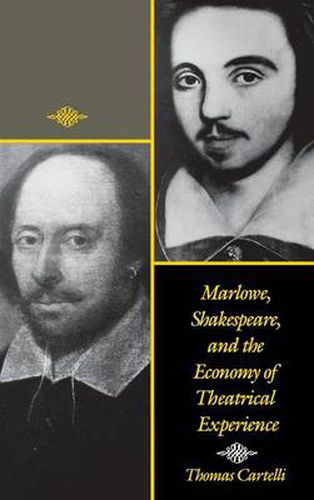Readings Newsletter
Become a Readings Member to make your shopping experience even easier.
Sign in or sign up for free!
You’re not far away from qualifying for FREE standard shipping within Australia
You’ve qualified for FREE standard shipping within Australia
The cart is loading…






The author explores the structure of psychological, social and political exchanges that were negotiated between audiences and plays in Elizabethan public theaters in a period ostensibly dominated by Shakespeare, but strongly rooted in Marlowe. Cartelli develops a model of theatrical experience and applies it to plays by Marlowe and Shakespeare that do not usually speak to each other in comparative estimates of their work. His commentaries on these plays successively demonstrate their encouragement of audience engagement with fantasy material, their capacity to demystify established structures of belief and behaviour, and their operation as correctives to defined habits of taste and judgement. Although Marlowe and Shakespeare traditionally function as embodiments of opposed ideas about theatrical experience, Cartelli concludes that in the shared context of Elizabethan theatrical transactions, Shakespeare could be as radical a dramatist as Marlowe.
$9.00 standard shipping within Australia
FREE standard shipping within Australia for orders over $100.00
Express & International shipping calculated at checkout
The author explores the structure of psychological, social and political exchanges that were negotiated between audiences and plays in Elizabethan public theaters in a period ostensibly dominated by Shakespeare, but strongly rooted in Marlowe. Cartelli develops a model of theatrical experience and applies it to plays by Marlowe and Shakespeare that do not usually speak to each other in comparative estimates of their work. His commentaries on these plays successively demonstrate their encouragement of audience engagement with fantasy material, their capacity to demystify established structures of belief and behaviour, and their operation as correctives to defined habits of taste and judgement. Although Marlowe and Shakespeare traditionally function as embodiments of opposed ideas about theatrical experience, Cartelli concludes that in the shared context of Elizabethan theatrical transactions, Shakespeare could be as radical a dramatist as Marlowe.